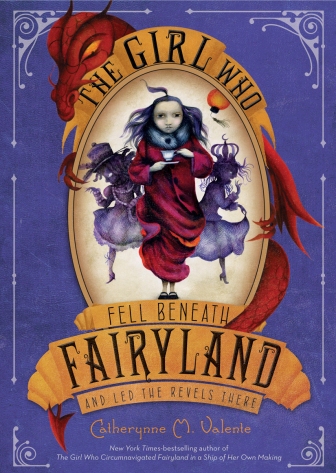Halloween, the Hollow Queen, Princess of Doing What You Please, and Night’s Best Girl
October 9, 2012 § Leave a comment
…Or so September’s shadow has become, in The Girl Who Fell Beneath Fairyland and Led the Revels There, since being cruelly sliced from September’s side and taken down to Fairyland Below in the first book of the series, The Girl Who Circumnavigated Fairyland in a Ship of Her Own Making.
 Now September has returned to Fairyland to find that her shadow, Halloween, has caused a panic in Fairyland-Above by stealing everyone’s shadows (the source of their magic) to join her in her nightly revels in Fairyland-Below, with the help of the mysterious Alleyman. September must stand up to her impish and impulsive shadow, resist the temptations of constant, unbridled magic-making, and find a way to restore balance to Fairyland.
Now September has returned to Fairyland to find that her shadow, Halloween, has caused a panic in Fairyland-Above by stealing everyone’s shadows (the source of their magic) to join her in her nightly revels in Fairyland-Below, with the help of the mysterious Alleyman. September must stand up to her impish and impulsive shadow, resist the temptations of constant, unbridled magic-making, and find a way to restore balance to Fairyland.
In Fell Beneath Fairyland, September is a slightly older, and more emotionally muddled, heroine—now a budding teenager, September’s heart is a bit more aching, and her instincts are a bit more honed. Her shadow is still the spitting image of the September who saved Fairyland in the last book, missing shoe and all—a couple of years younger, and so much more impulsive. Halloween is very much September’s Id, the child-self that growing September is leaving behind, and it’s this contrast that Fell Beneath Fairyland seeks to explore: what happens to a child heroine once she’s no longer such a child? Does a one-time savior of Fairyland get to enjoy the magical fruits of her labor and let untapped wishes loose, or is a heroine’s work dependent on balance? « Read the rest of this entry »



